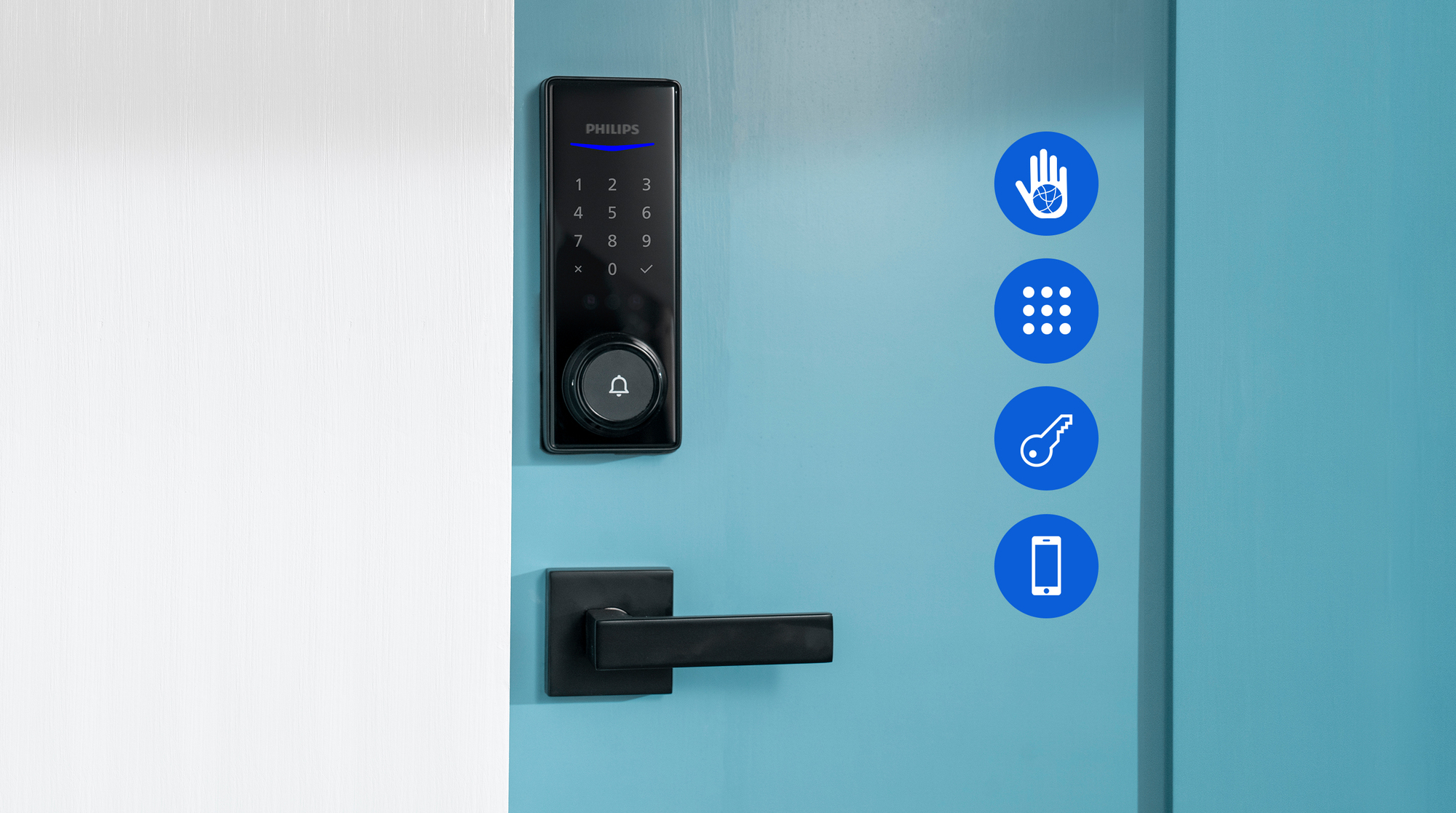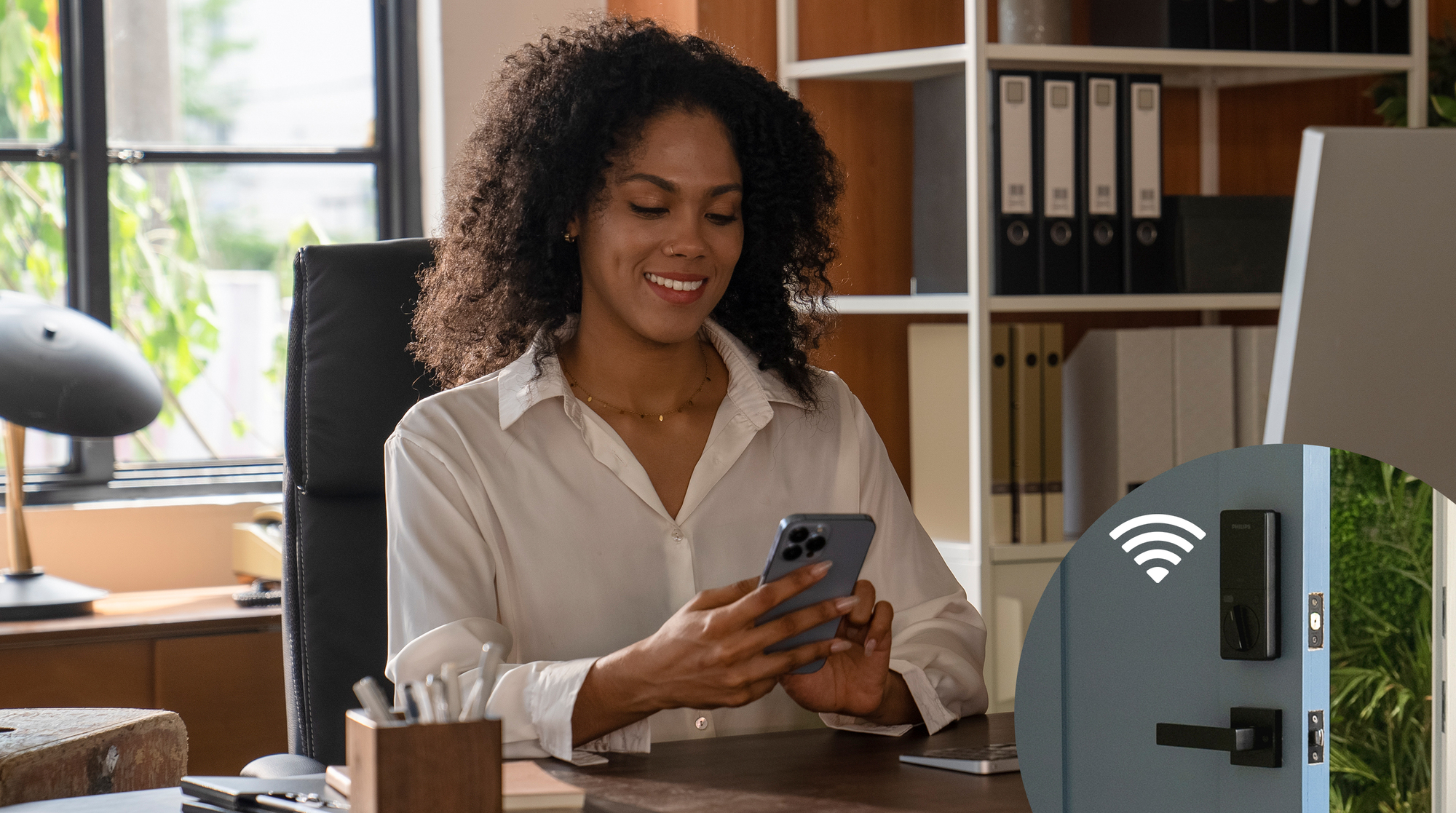
Do you find yourself endlessly rooting around in your bag for your keys every evening? Or ever had to wait on the kerb whilst someone else rushes home to let you in? Perhaps it's time to give your home security a tech upgrade by ditching your keys altogether in favor of one of the best smart locks out there for hassle-free home security.
Announced this week, there's a new technology in smart locks that we think might just be the next big thing in smart homes. With Philips Wi-Fi palm recognition smart deadbolt, announced at CES 2024 this week, your palm is the only key you need, meaning you'll never find yourself locked out again.
So what does it do? Using cutting-edge technology, the smart lock recognizes the vein pattern in your palm, unlocking the deadbolt to welcome you back into your home without any of the usual key-related stress.
And why is this a gamechanger? Well, not only is it easier to use for people of all ages, meaning kids and older people will have no worries in entering their homes with this device, it's also more secure than traditional smart locks that use fingerprint entry. Here's what you need to know about it.
What you need to know about 'palm-reader' smart locks

A smart lock allows you to access your home using technology rather than a traditional set of house keys. Not only can you unlock with ease when you're at the front door holding more bags than you have arms, but you can also make changes from your phone no matter where you are. So gone are the days of panicking about how the dog walker will get in or whether you remembered to lock the door as you hurriedly left in the morning.
Like most smart locks, this new Philips model is no one-trick pony. With multiple ways of unlocking the door, you can choose the way that works best for you. The easiest way is to simply face your palm up to the lock for a seamless entrance but the lock can also be controlled using the Philips Home Access app, a key code or with an old-school house key.
The indoor-facing part of the lock is as slick as the outside, featuring built-in proximity sensors which recognize your palm as you get closer to the door and automatically unlock it for you to leave without you needing to even touch the deadbolt.
How Secure Is The Palm Recognition Technology?

So, how secure really is the Philips palm recognition Smart Lock? The answer: impressively safe. 'This groundbreaking innovation represents our commitment to delivering cutting-edge solutions that empower homeowners with unrivalled security,' says Jeroen Koster of Philips.
Much like fingerprints, everyone has their own unique pattern of veins which the palm vein reader is able to detect and recognise. If it is satisfied that your veins match up with one of the registered palms on the system, the deadbolt unlocks to give you effortless access to your home. However, unlike fingerprints, palms are far more difficult to replicate to gain access — the distinctive nature of your veins means that replication isn't possible, offering unparalleled home security.
The best part? You can store up to 50 different palms on the lock and it works on hands of all ages meaning even the grubby little hands of kids returning from the park will do the job.
Why Does The Smart Lock Need Wi-Fi?

If even the thought of Wi-Fi routers and connections makes you start to sweat, this smart lock has built-in Wi-Fi technology which means that you don't need to worry about any extra Wi-Fi bridges. You simply pair the lock with your Philips Home Access App and then you have full control of your front door in just a few clicks from wherever you are.
What's more, it will even connect up with your Smart Assistant. Whilst Alexa can't tell you where your house keys are, she can help to monitor your front door when linked up with the deadbolt. Of course, the Philips Home Access App works seamlessly with it too meaning that you're never more than a few taps away from total peace of mind about your home security.
This product is launching in Spring 2024, so while you can't get your hands on it right now, before long, we could be seeing palm-reading doors across the land.







